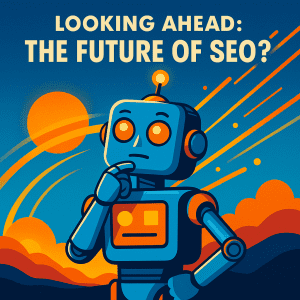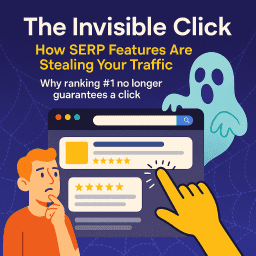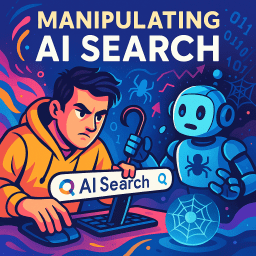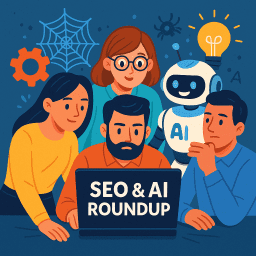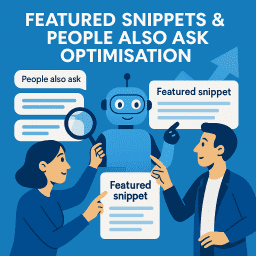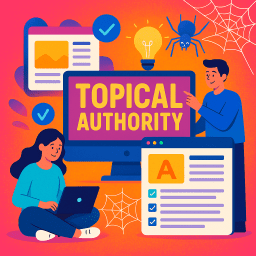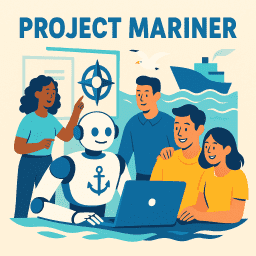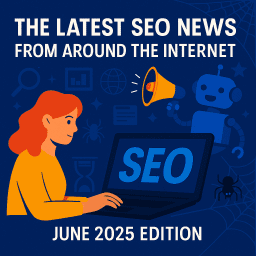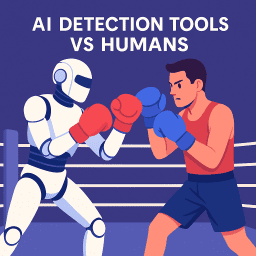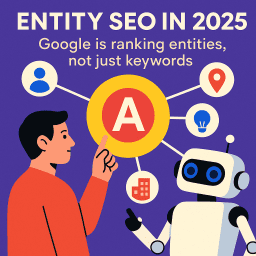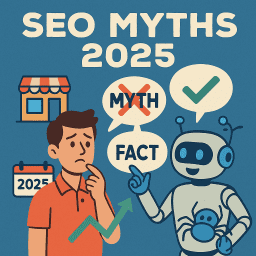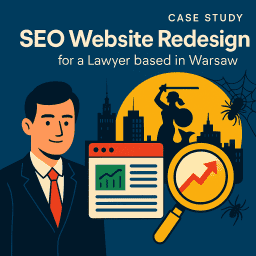AI Takes Over Search: How SEO Is Rapidly Evolving in 2025
What SEOs need to know about Google’s AI shift
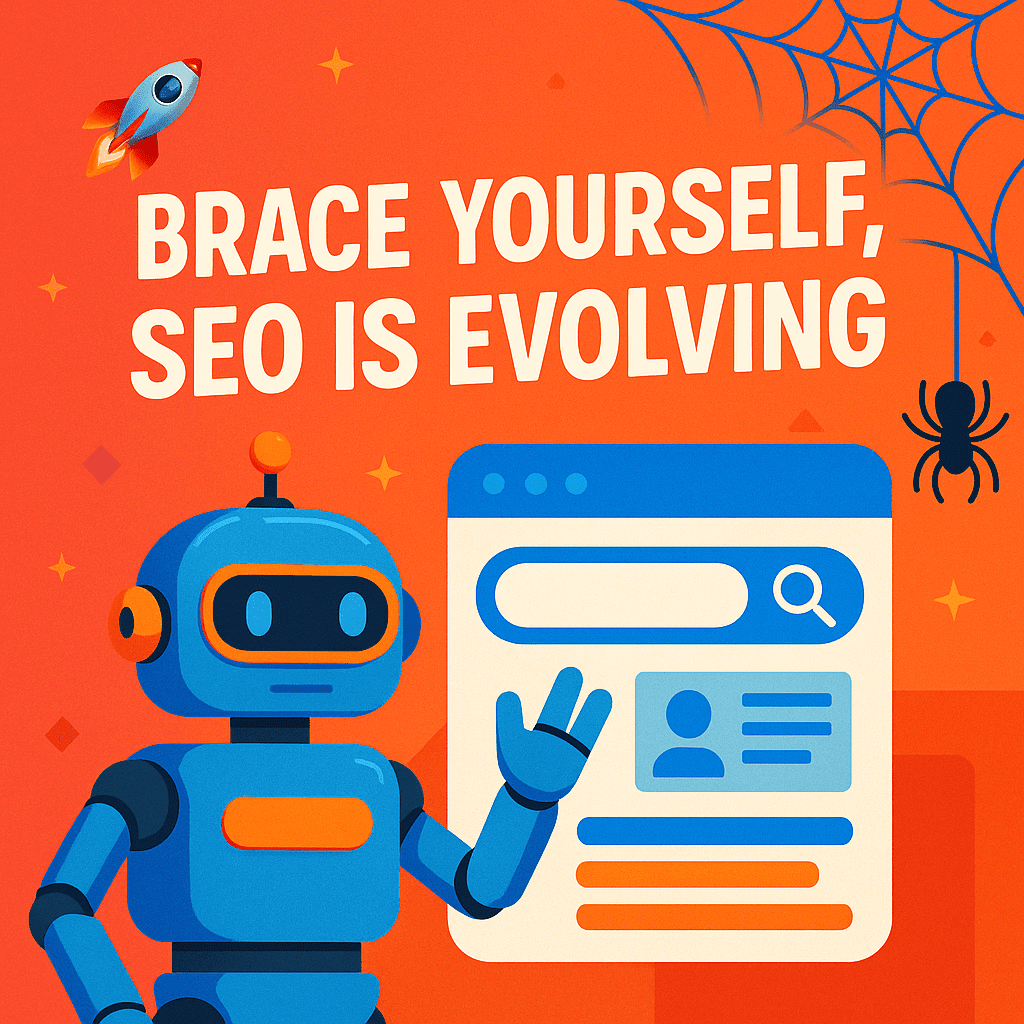
🚀 The AI Takeover: How SEO Is Changing Forever
🚀 Brace yourself, SEO is evolving – again. June and July 2025 mark the most seismic shift in search since Google launched over two decades ago. With the widespread release of AI Overviews, the introduction of “AI Mode” in the US, and a growing push towards Answer Engine Optimisation (AEO), the entire search landscape is being reshaped.
In this deep-dive, we’ll unpack how SEO is evolving during this pivotal period, what it means for your traffic, and how to stay ahead in a world where AI increasingly controls the SERPs.
🔍 What’s Happening Right Now?
In May 2025, Google formally rolled out AI Overviews to all US users. Just a few weeks later, the “AI Mode” toggle was added to mobile and desktop interfaces, allowing users to enter a full generative search experience. This shift allows users to ask multi-part questions, receive summarised answers, and skip traditional blue links altogether.
And it’s not just Google. Tools like Perplexity, Microsoft’s Copilot, and ChatGPT with browsing are increasingly offering search-like experiences powered by large language models (LLMs). All of this points to a new reality—search is no longer just about keywords and links. It’s about answers.
📉 Declining Clicks, Rising Uncertainty
One of the biggest challenges with AI-powered search is its impact on traditional click-through rates (CTR). Several independent studies in June 2025 show that queries with AI Overviews have seen CTR drop between 18–64% depending on the industry and type of search intent.
That means less traffic to organic listings, fewer impressions, and more uncertainty for businesses relying on SEO as a primary traffic channel. These aren’t just blips—they’re systemic changes in user behaviour.
🧠 Enter: Answer Engine Optimisation (AEO)
- 🟢 AEO focuses on getting your content used and cited directly in AI-generated responses.
- 🔵 GEO (Generative Engine Optimisation) is the emerging sibling, aiming to make your content visible inside AI tools like ChatGPT and Perplexity.
Suddenly, having great on-page SEO isn’t enough. Your content must now be answer-worthy: well-structured, factually sound, and aligned with conversational intent.
🛠️ SEO Tools Are Evolving Too
Top SEO platforms—Semrush, Ahrefs, Surfer, and Clearscope—have all announced updates or betas that track visibility in AI-generated answers. These tools now measure things like:
- Whether your site is cited in AI Overviews
- What kind of snippets your content appears in
- Your position inside “AI Mode” panels
This new data helps SEOs adjust strategy beyond just SERP rankings—because the top link doesn’t matter if AI answers the query first.
Also read:
How to Optimise for AI Visibility and Get Cited by the Machines
📲 Google’s AI Mode Explained
Launched widely in June 2025 (US-only for now), AI Mode lets users opt into a fully generative search experience. Key features include:
- Summarised answers powered by Gemini 1.5
- Multi-step query understanding
- Follow-up prompts, links, and shopping recommendations
Early data shows that users spend longer in AI Mode sessions, but click fewer traditional search results. Expect this mode to roll out globally by late 2025—so now’s the time to prepare.
📊 Search Console Gaps & Data Blind Spots
SEOs are reporting serious visibility issues in Search Console. Traffic from AI Overviews and AI Mode is often misattributed or simply not shown. Google has acknowledged this gap and is testing “AI Overview annotations” in beta for selected publishers.
Until these are rolled out more widely, many SEOs are relying on:
- Third-party tools like Similarweb and SparkToro
- Manual log file analysis
- Custom UTM tagging and on-site behaviour tracking
In short: if your organic traffic is dipping and you can’t find a reason—you’re not alone.
📍 Local SEO Is Changing Too
Local businesses have felt the impact of AI results in a different way. With fewer local pack impressions and more “summary style” responses, the emphasis is shifting to:
- Review freshness and sentiment
- Strong local schema markup
- Brand awareness and E-E-A-T indicators
Many users are now bypassing traditional map packs in favour of AI-curated recommendations. This means reviews and citations need to be more consistent—and more visible—than ever.
💬 What the Experts Are Saying
Lily Ray: “Google’s AI Overviews are rewriting the rules. SEOs need to rethink success metrics entirely.”
Barry Adams: “Generative search is a black box. We need to reverse-engineer visibility in these new AI layers.”
Kevin Indig: “Optimising for AI means structuring content for clarity, sourcing, and credibility—Google’s new currency.”
🧭 Strategies That Work Right Now
- Structure your content: Use FAQ sections, lists, headers, and schema.
- Be a source: Include expert quotes, original data, and unique insights that AI wants to cite.
- Answer more questions: Use People Also Ask (PAA) data and conversational keywords.
- Improve E-E-A-T signals: Use bylines, credentials, and reputation across platforms.
🧠 Looking Ahead: The Future of SEO?
So where does this leave traditional SEO? We’re not saying it’s dead. But it’s being rewired.
Organic search isn’t disappearing—it’s being layered with AI. Classic ranking factors like links, page speed, and relevance still matter. But now, you’re also judged on how useful your content is to a machine summarising the web.
This opens the door to new SEO roles and responsibilities:
- Prompt engineering for AI visibility
- Data journalism for original statistics and insights
- AI-output monitoring and brand presence within LLMs
The best SEOs in 2025 are already doing all three.
🤖 Final Thoughts
The rise of AI-powered search marks a fundamental shift from keyword matching to intent understanding. As models like Google’s Multitask Unified Model (MUM) and Gemini become integral to results pages, content that demonstrates depth, context and real-world relevance will outperform thin, SEO-first articles. Rather than chasing exact-match keywords, focus on comprehensive coverage of topics—answer related questions, cite authoritative sources and weave in examples that showcase your expertise. This approach aligns with how AI evaluates content: as a web of interconnected knowledge rather than isolated snippets.
To thrive in the AI-driven search landscape of 2025 and beyond, invest in structured data and clear site architecture so AI agents can parse your information accurately. Embrace multimedia—videos, infographics and interactive tools—to enrich user experience and signal value beyond text alone. Finally, monitor emerging search formats (voice, visual and conversational interfaces) and adapt your content strategy accordingly. By prioritising user-first, richly contextual content and staying agile to new AI capabilities, you’ll ensure your site remains a go-to resource in an increasingly intelligent search ecosystem.
David Roche says: “We’re not optimising for algorithms anymore—we’re training machines to trust us. That’s the real shift in SEO for 2025.”
🧠 Recap and Clarify: Page-Specific FAQs
How is AI changing the way people search?
AI is making search more conversational, predictive, and context-aware. Users are interacting with AI assistants like ChatGPT, Google Gemini and Perplexity for deeper, real-time answers instead of relying solely on classic blue links.
What does AI search mean for traditional SEO?
It shifts focus away from ranking individual pages and towards optimising entire content ecosystems. AI answers are often generated from summaries, so structured content, clarity, and topical authority matter more than ever.
Are AI-generated answers replacing website clicks?
In some cases, yes. AI Overviews and chat-style search interfaces reduce the need for users to click through—but brands that are cited or sourced still benefit from visibility and authority signals.
How do I get my content included in AI-generated answers?
Focus on writing clear, structured content that directly answers common questions. Use schema markup, include sourceable facts, and build topical authority around a subject cluster.
Is Google’s SGE (Search Generative Experience) rolling out globally?
Google has started rolling out SGE features in several countries, with broader expansion planned throughout 2025. Expect AI-enhanced search to become the default experience over time.
What types of content perform well in AI search?
Content that’s authoritative, factual, up-to-date, and easy to summarise performs best. Think FAQs, how-to guides, definitions, and well-structured explainer content.
Will backlinks still matter in an AI-driven search era?
Yes, but more as a signal of authority than a direct ranking factor. AI models still rely on trust signals, and backlinks remain a valuable indicator of credibility and relevance.
How can I track performance if fewer users are clicking?
Track visibility, impressions, brand mentions, and engagement metrics—not just clicks. Tools like Google Search Console, Semrush, and social listening platforms will help paint a fuller picture of your reach.
Will AI make SEO obsolete?
No—but it is transforming the skill set. Future SEO will focus less on page-by-page optimisation and more on content strategy, data structuring, and understanding how AI interprets relevance and quality.
What should I do now to stay ahead?
Invest in high-quality, topic-focused content, embrace structured data, monitor how your brand appears in AI summaries, and test new formats like conversational FAQs or interactive experiences.


